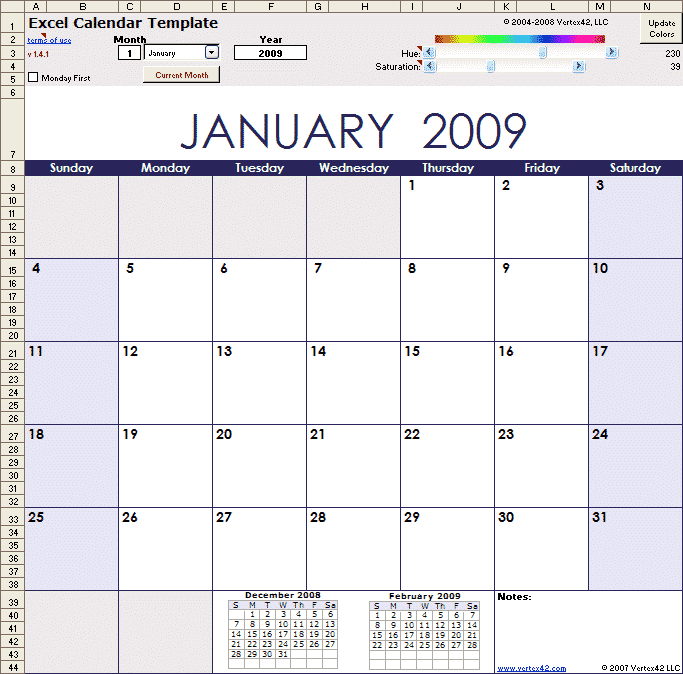I got a chance to sit down with Ken Dryden for an interview when he was in town earlier this month. After being kidded by Michael Ignatieff for my lack of a technology, I came armed with my brand new mini tape recorder. So, in his own words, here is what Ken Dryden had to say about everything from Reggie Leach to the state of the Liberal Party:For the sake of my Calgary readers, I feel I must ask you this: what the hell went wrong with the Flames this year?I get so little chance to see games, I don’t know. When you have a goalie like Kiprusoff, you know you’re going to be in it – you know you’re not going to be more than a goal behind. I didn’t follow it closely, and I gather they had trouble scoring this year. I see the highlights but the highlights only tell you so much – you can’t see the pattern of the game, you can’t see what’s going right and what’s going wrong.
On that same theme, you’re seen as “the hockey candidate” to many. And you’ve played this up yourself with hockey cards at the LPC(O) convention and by going on HNiC the night you declared. Is there a fear that Ken Dryden the all-star goalie will overshadow Ken Dryden the politician in this race?The odd part is that when I was playing hockey, I was a person who wasn’t just a hockey player. There were lots of goalies but there weren’t many goalies who went to law school and worked for Ralph Nader, so people understood me in hockey as somebody “outside of hockey”. When you play in the NHL for as long as I did, people get to know you and they don’t stop knowing you because you stop playing hockey. People will always connect with what they know best. I wouldn’t say people know me as a hockey player but rather they know me through being a hockey player and that’s a different thing.
They see you let in a goal from centre ice, they see you in a terrific moment, they see how you handle things - they get to know you seeing you do something. They expect you as a politician to be the person they came to know 30 years ago.
You’ve developed a reputation for being a bit wordy. So, to practice, I’d like to hear the quick sound byte answer to the following question: Why did the Liberal Party lose the last election?Because when you’re a government that long and you get battered day after day, you start to lose confidence in yourself and you start to not be so certain of what you believe in. You’re not sure of the things that made you so proud and how you got there.
After the election you observed that it’s “only when you lose that you start to learn.” What can the LPC learn from the last election?The first part is that you win an election, you don’t get the other guy to lose it. We have to earn our way back, find the coherent story that is us and offer it to the public. The public is waiting for it, they were waiting for it the last election and they waited until time ran out. It’s up to us to come back and present it to them.
When a hockey team’s season ends, they must decide if they’re going to tinker with the roster or do a massive rebuilding. What kind of shape is the LPC in? Is it just a matter of picking a new face and refining policy, or does the party need a dramatic philosophical shift?I think it’s between your extremes. A massive rebuilding never really happens; you’re always taking what you’ve got. A lot of what’s there is strong - we’re a party that’s always been really successful. The question is what are the other things that aren’t.
Part of it is that this party needs to broaden itself. In terms of ideas, it has the broadest base of support across the country, but it has the narrowest funding and the narrowest power base. That’s something that needs to move along with everything else that happens. You have leadership which is the big exposure before the next election but these other things need to happen and they don’t stop on December the 3rd. They’re ongoing.
The other thing is the policy process because that’s where any party’s energy comes from. It’s what you believe in common, why it matters to you and why you feel strongly about it. That’s the on-going process. If you start to run short there, the whole energy of the party passes on down.
You’ve talked about “Big Canada”. Obviously child care is a part of that but what other national programs fit into the “Big Canada” theme?The central part is the understanding of ourselves. Businesses talk about having the right culture and teams talk about having the right tradition. But what’s the right story for this country? It starts that we’re in an immensely successful place and we didn’t get there for no reason. We have all the bases to be even more successful in the future. If you don’t understand that, you set your ceilings way too low.
Our biggest achievement is probably that we’re a live and let live country and there’s probably not one other in the world that is that way so much as we are. In a global world that’s the way you need to function if you’re going to be successful. We lived it out with the early French and English experiences. That’s why our multicultural society works. It’s an important base for us to take on our future.
The blogs have been talking a lot about some comments made by Bob Rae at the LPC(O) convention. Do you see anything wrong with Bob Rae comparing the softwood agreement to the Munich Pact?I was beside him when he said it and I’m not sure if that was the exact nature of his comments. He did talk about Chamberlain and how the appearance at one moment may not be the reality later. I’m not so sure that he wasn’t just questioning the impact of the softwood deal. But I don’t know if he’d come to the final conclusion that this deal was as misguided as Munich.
When the CBC ran their “Greatest Canadian” series last year, Tommy Douglas came out on top. A pair of hockey people, Wayne Gretzky and Don Cherry, cracked the top 10. Who do you think is the Greatest Canadian?(
huge pause) Obviously, it’s who’s had the biggest impact on how we live and if he or she hadn’t existed, that would be the biggest change. Hmm…let me come back to that one at the end.
Finally, who is the most difficult right winger you’ve face in hockey, and in politics?The first one that comes to mind in hockey was Reggie Leach. He killed me, he just seemed to score at will. The worst part about it was that I knew exactly what he was going to do and he knew that I knew what he was going to do. But there was no way I’d cheat on him or move ahead of his shot because I was sure the next time I’d be quick enough to stop him, and I never was.
Now, in terms of politicians…I think it is Stephen Harper. The other voices are voices that moment to moment you have trouble with but Stephen Harper is the one who sets the tone and carries the day. The tone that he sets and the day that he carries, to me, is the converse of what we talked about before with a Big Canada. His understanding of the country is not mine at all. This is a place where we have benefited greatly from big national endeavors and there is a big future role for Canada in Canada, and I don’t think that’s how he sees the country.
Now…the greatest Canadian…
The key is, if Tommy Douglas hadn’t done what Tommy Douglas did, would there have been a Tommy Douglas who would have come pretty quickly thereafter? I think probably yes. The achievement may well be our greatest national achievement but I’m not sure that that makes him the greatest Canadian.
It’s funny because usually you get a question about who would you want to meet and I’m much more comfortable with that answer. I’d want to meet somebody of another time who lived an average life to find out what that average life in another time was like. Tell me about your day to day? When you wake up? What you imagine for your kids? What about your parents? How do you imagine your own future? What are those things that give you your biggest satisfaction and worry you the most? Because I’m not going to understand 1880 unless I understand you.
Somebody who lives the special life of any time is disconnected from life at that time. You only get the highlights - it’s just like getting the 11 o’clock sports highlights.
I am going to ask you this question: Who do you think it is?
CG: I voted for Trudeau because I’m a big fan. But I think you could make a strong case for Terry Fox on the inspirational side. And Banting obviously accomplished a lot for the world.Actually, I hadn’t thought of Terry Fox. I think that was such an unbelievable achievement. I remember when he started we were living in Ottawa and when he stopped in Thunder Bay, we were living in England for a year. And it was a tiny little note in the International Herald Tribune that Terry Fox had stopped in Thunder Bay because of a recurrence of his cancer. A tiny little story.
I thought: that is unfair, that is just utterly unfair. Things happen to everybody but that’s not just. When you think of the Terry Fox stories that are told today, there’s nobody from 25 years ago who is referred to as often.
After the interview, we talked a lot about the campaign and he really turned the tables asking me a lot of questions. You really do get the sense that he is genuinely interested in listening to people and talking to them. It must drive his handlers who are trying to keep him on schedule insane.
As for his candidacy, in a perfect world, Ken Dryden is the sort of man who should be Prime Minister. I don’t think I know of any individual who has given as much thought to what it means to be Canadian, how Canada works, and where the country should be taken. Could he win an election? Could he handle the cynical partisan nature of politics if he did become party leader? Does he have the neccesary political experience? It’s hard to say. But the Liberal Party is certainly a lot richer by having him in the race and he would probably be one of Canada’s most intriguing party leaders in a long time if he did win.
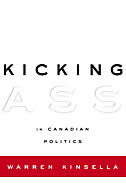 Kicking Ass in Canadian Politics by Warren Kinsella
Kicking Ass in Canadian Politics by Warren Kinsella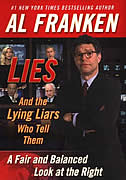 Lies and the Lying Liars who Tell Them: A Fair and Balanced Look at the Right by Al Franken
Lies and the Lying Liars who Tell Them: A Fair and Balanced Look at the Right by Al Franken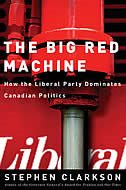 The Big Red Machine by Stephen Clarkson
The Big Red Machine by Stephen Clarkson Juggernaut by Susan Delacourt
Juggernaut by Susan Delacourt The Antagonist by Lawrence Martin
The Antagonist by Lawrence Martin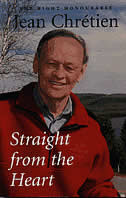 Straight from the Heart by Jean Chretien
Straight from the Heart by Jean Chretien Chretien: The Will to Win by Lawrence Martin
Chretien: The Will to Win by Lawrence Martin My Life by Bill Clinton
My Life by Bill Clinton Pierre by Nancy Southam
Pierre by Nancy Southam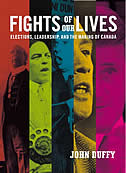 Fights of our Lives by John Duffy
Fights of our Lives by John Duffy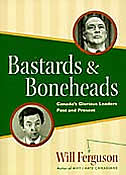 Bastards & Boneheads by Will Ferguson
Bastards & Boneheads by Will Ferguson Egotists and Autocrats by George Bowering
Egotists and Autocrats by George Bowering




